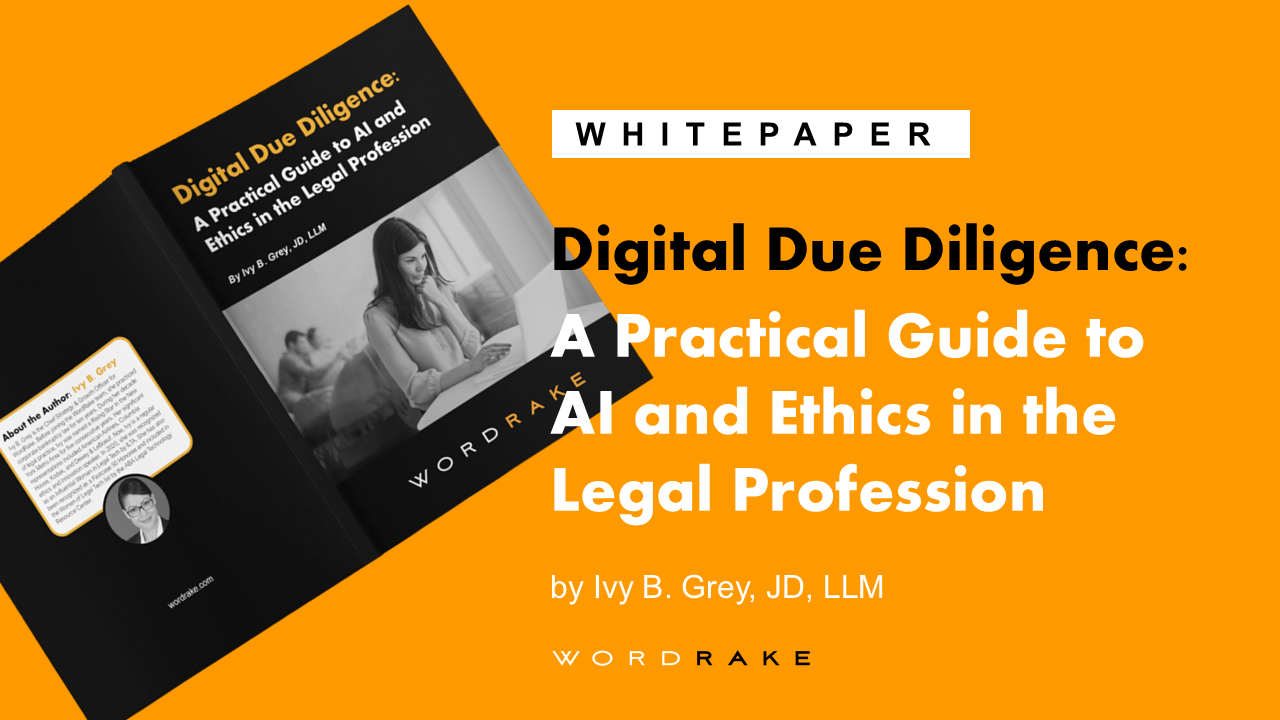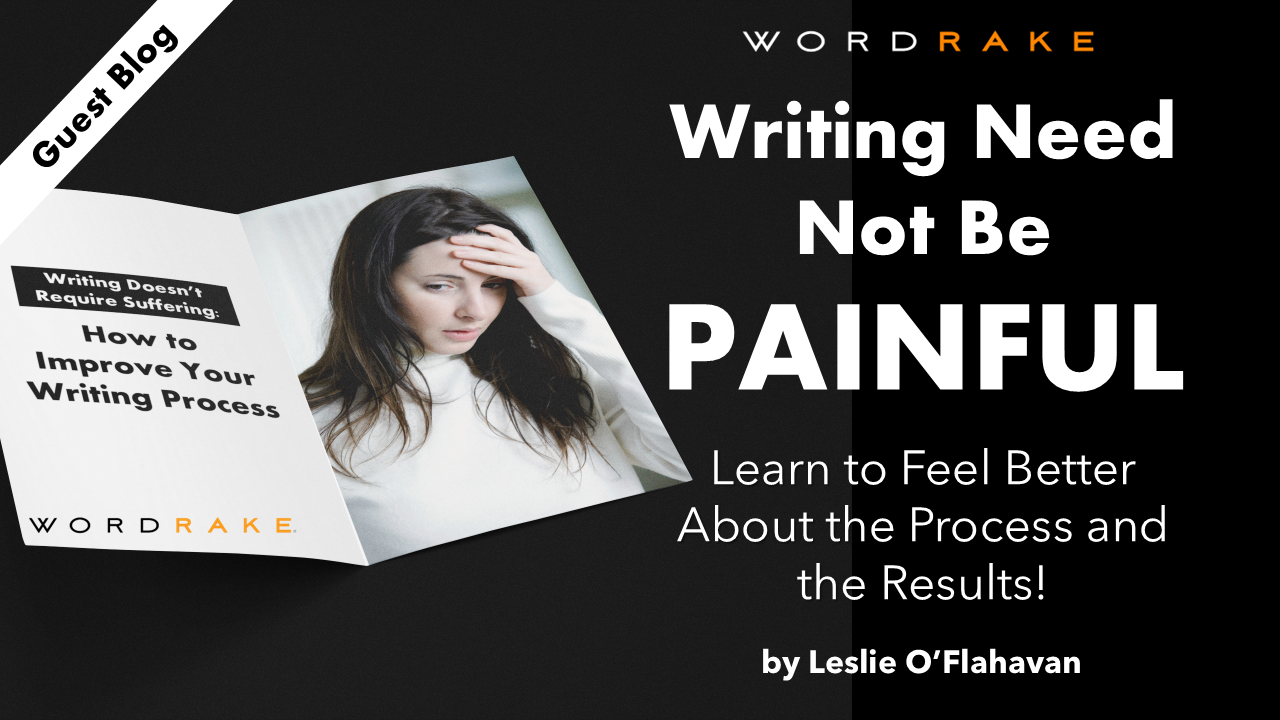Even if you are a highly experienced legal writer, you will face times when a brief scares you. Though writing is daily work for many lawyers, critical briefs can temporarily take over our lives and minds. Unfortunately, not all briefs bend easily to your will. Sometimes the legal issues are novel, the factual issues don’t align perfectly with the law, or maybe a client issue in the background adds extra stress. Any of these situations is enough to induce fear in the lawyer charged with writing the winning brief.
As a lawyer who has felt this kind of fear about writing projects in the past, I can at least share some good news. You can still write a solid brief even when a case makes you nervous. Here are the five tips that work for me.
1. Don’t Judge Yourself
If you are someone who prides yourself on your legal writing, it may be easy to feel ashamed when a project makes you nervous. I urge you to avoid this trap. Fear happens to all of us, even the best lawyers and writers. You are human and, as a lawyer, your job is helping clients manage stressful and risky legal issues. Fear doesn’t mean you can’t do your job well or are doing anything wrong. It just means that you care about your work, but you can’t entirely control the result. Instead of judging yourself, show yourself compassion so you can focus on the work.
2. Remember Your Role
The lack of control is hard for good legal writers to accept. We want to craft the best arguments to help our clients win. But the truth is that even the best briefs lose. Even the best lawyers sometimes lose. Your role in crafting the brief is not to guarantee a win but to craft an argument that maximizes your client’s chances of winning. Remembering this can take the pressure off and prevent the wheels of your mind from spinning fruitlessly to find the “perfect” argument. This can help you focus on building a solid and well-crafted argument instead.
3. Don’t Procrastinate
One of the worst, but perhaps most human, things to do when a project scares you is to procrastinate. It’s a common misunderstanding that procrastination is about laziness or disorganization. In my experience, procrastination is far more likely to occur when I am anxious rather than nonchalant about a writing project. So how do you avoid it? Noticing the tendency to avoid is an essential first step. When I feel the urge to avoid an important brief, it is a clear sign that I need to make it a priority.
This feels counterintuitive but it is ultimately practical. The briefs that scare you tend not to be the simplest ones. They usually require more of your time rather than less. Once you have managed your fear enough, you should start as soon as possible. Dig through the file, do your research, and get an outline together to build some momentum. Begin getting words on the page as soon as you can, so that you can take the time to work on any structural, logical, and legal issues with the brief. If this is a severe struggle, jump to step 5 below and talk out the issue with a trusted colleague to ensure that procrastination does not lead to a significant loss of time.
4. Let the Fear Serve Its Purpose
Now, don’t get the wrong idea here. I am not telling you that you can simply stuff your fear about a brief to the side as you slog through a dense file, endless cases, and multiple drafts. On the contrary, if you can keep your anxiety from preventing you from working, it could serve a useful purpose. Though fear is no fun to experience, it can really highlight issues. If you don’t judge yourself for it, fear can help you identify the areas in the brief that require your attention.
That “uh oh” feeling no lawyer likes to feel when drafting a brief can tell you when your argument doesn’t flow. The feelings of concern as you evaluate an issue can signal a need for more authority to support a proposition of law or clearer analysis. Fear and confusion can prompt you to dig back into the transcript to confirm the witness’s exact quote. Attention to detail is something that can separate a great brief from a mediocre one. When managed with self-compassion, fear can be understood and even harnessed to help you zero in on the details that matter most.
5. Don’t Go It Alone
I consider myself to be a good legal writer, but I am the first to say that the best briefs I have written were collaborations. The good news about even the scariest legal writing projects is that they are not the bar exam. You are allowed to ask for help. On a personal level, human beings who are afraid deserve support. On a practical level, smart and efficient lawyers collaborate and combine talents to get the best results for clients. Getting a second set of eyes from a colleague or even input from a sophisticated client may help you ensure that the brief is as good as it can be before you sign your name and file it with the court.
Conclusion
Fear happens to all of us from time to time, including the very best lawyers and legal writers. When it happens to you, though, it does not mean that you can’t do a great job for your clients. Instead, with self-compassion, smart strategies, and support, you can write a solid brief even for that case that makes you nervous.
About Claire E. Parsons
Claire E. Parsons is Of Counsel at Bricker Graydon LLP in the Cincinnati, Ohio area. She practices in Kentucky and Ohio in the areas of school law, employment law, and litigation. Claire represents public and private entities and their officials and employees in litigation, a general counsel capacity, and as a consultant and investigator. She is a frequent speaker and writing on legal topics and is the general editor of Employment Contracts and Agreements: A Guide for Corporate Counsel.
Claire is also a mindfulness and compassion teacher with more than 1000 hours of training in mind-body practices and a popular speaker on mental health, stress management, and wellness topics. She is the founder of the Brilliant Legal Mind blog, the author of How to Be a Badass Lawyer and Mommy Needs a Minute. To learn more and reach out, you can follow or connect with Claire on LinkedIn.









